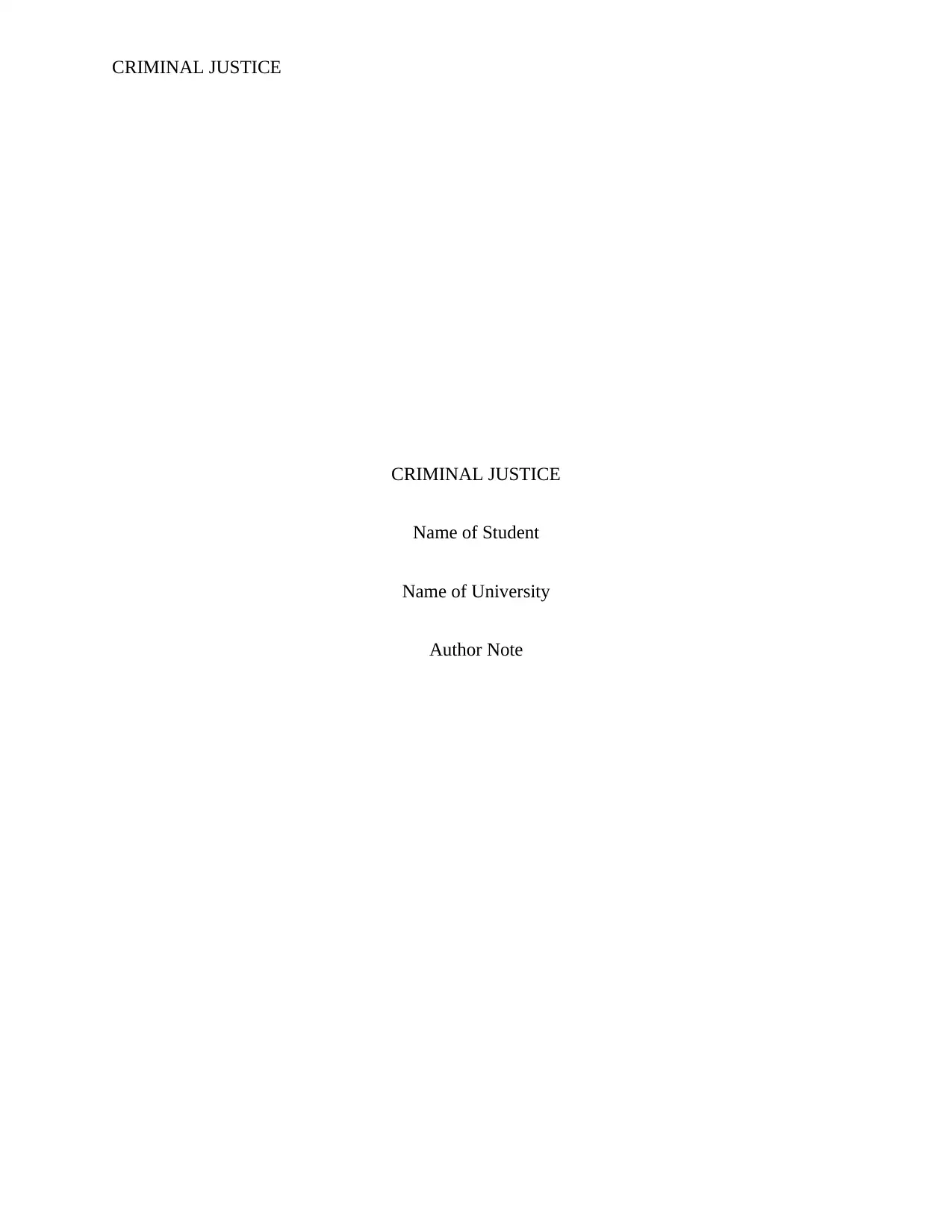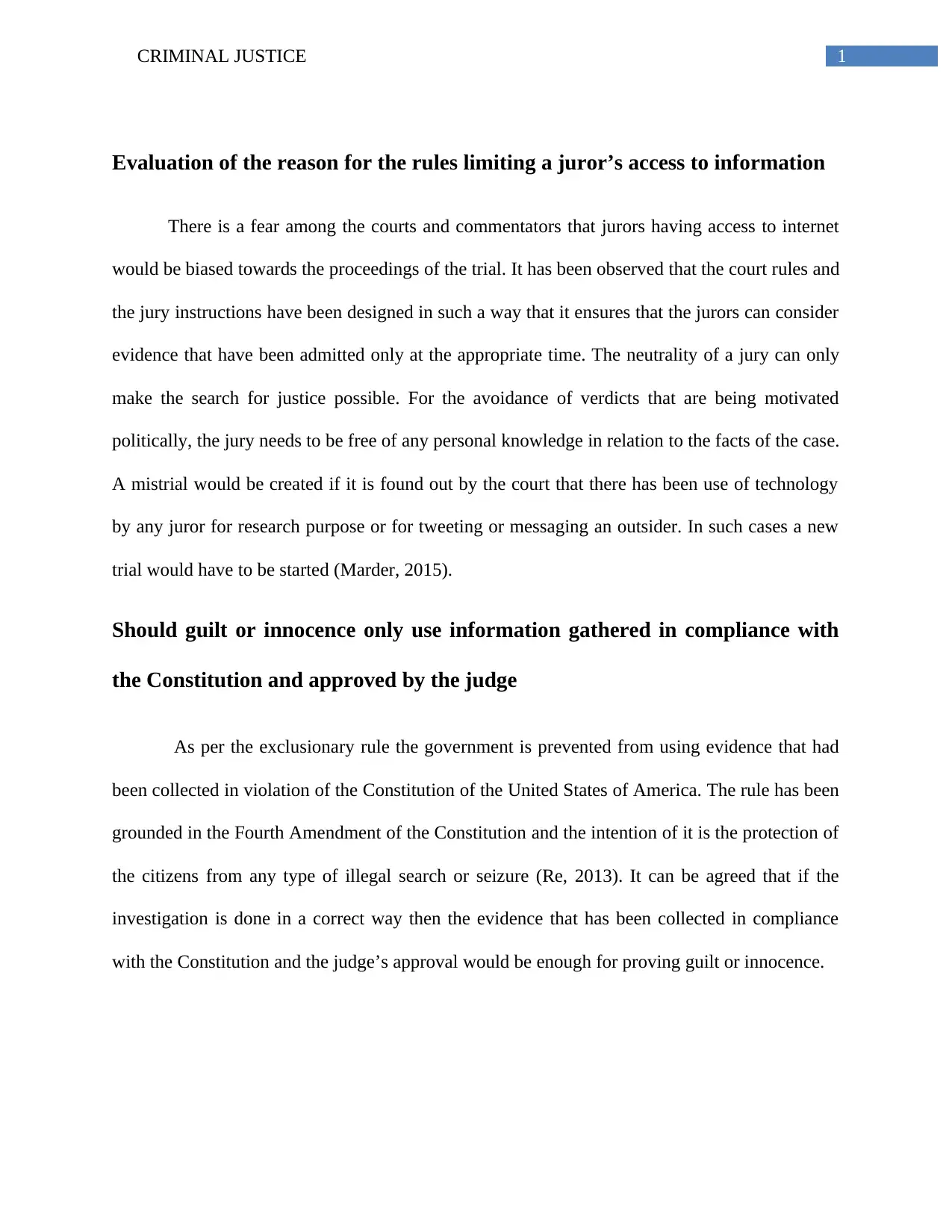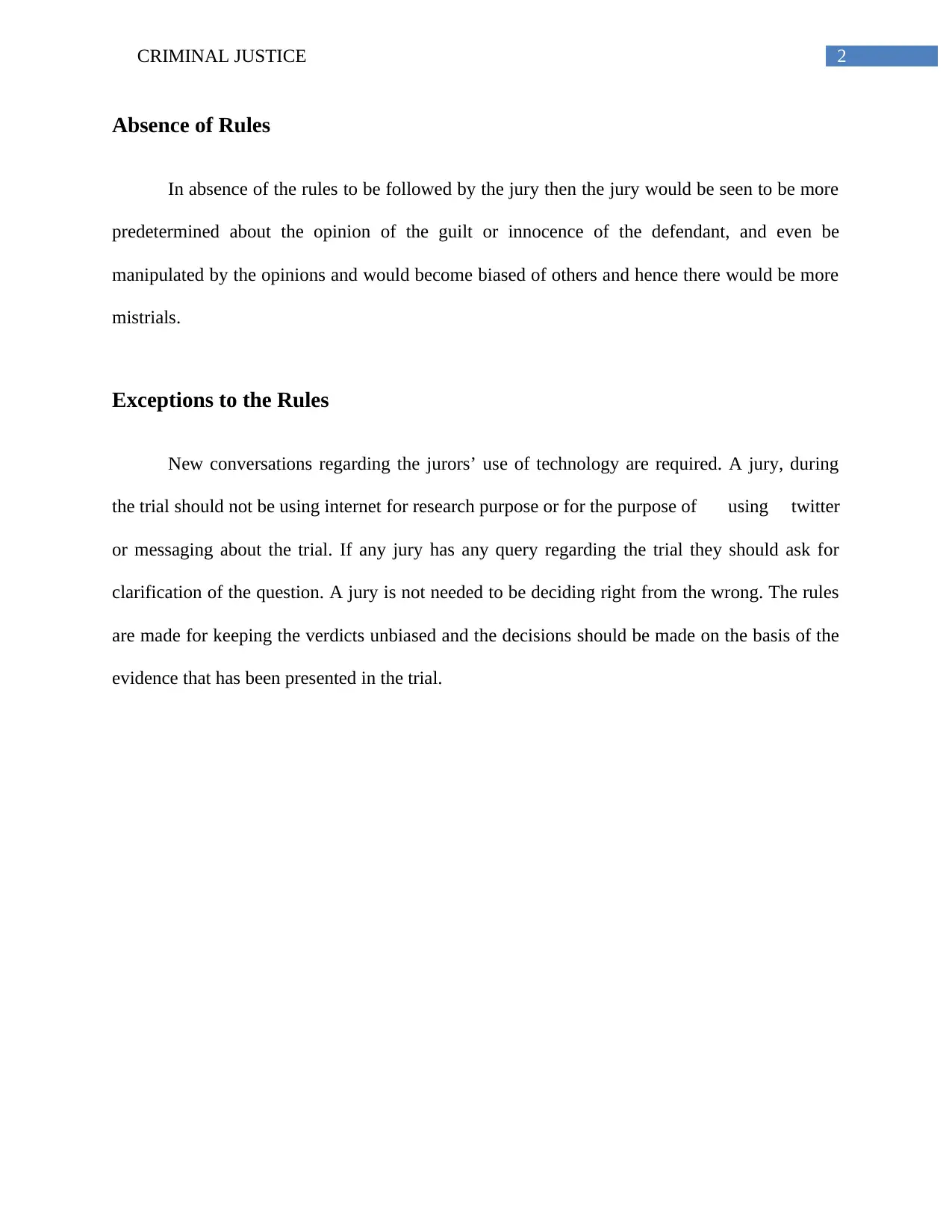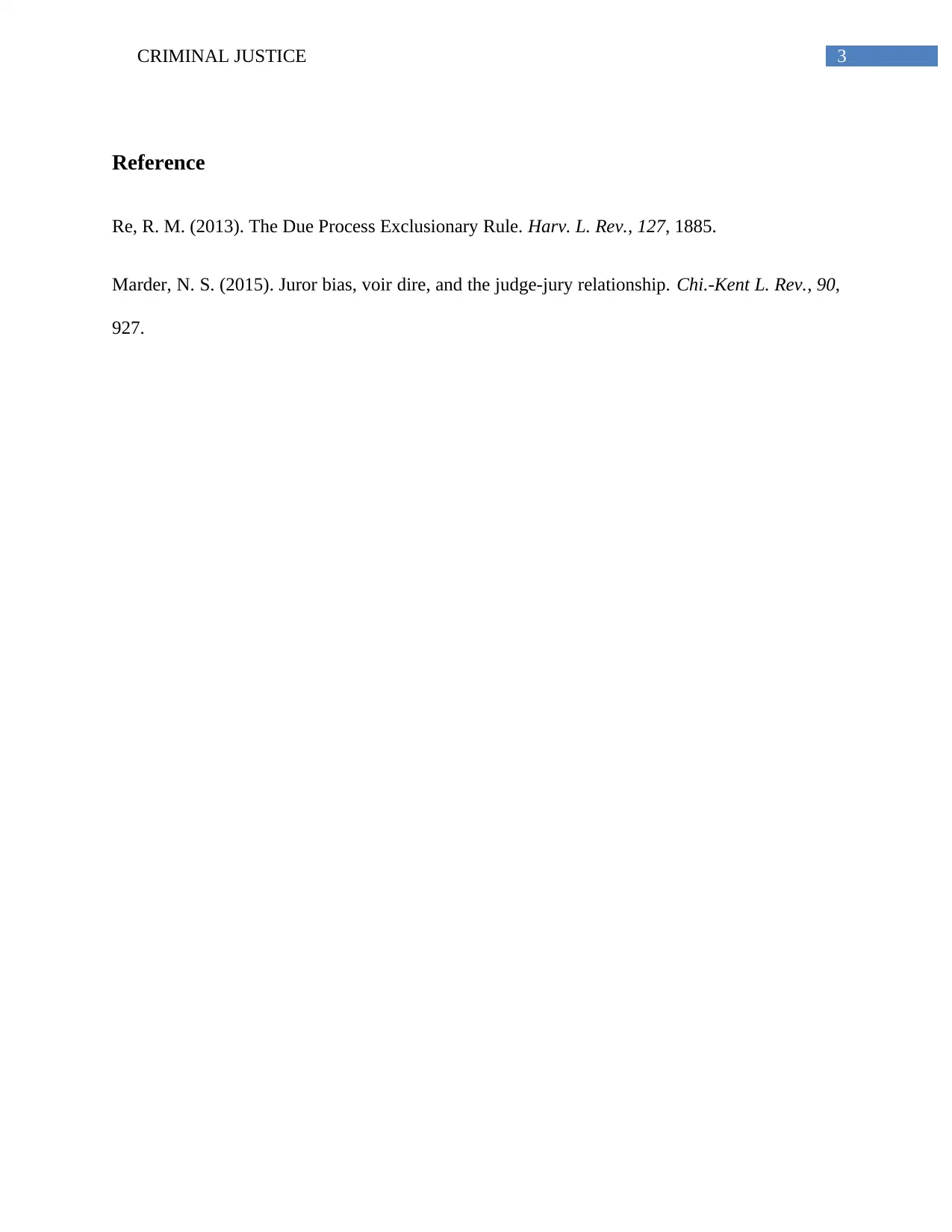Criminal Justice Assignment: Rules, Evidence, and Juror Behavior
VerifiedAdded on 2022/10/10
|4
|525
|321
Homework Assignment
AI Summary
This assignment delves into the complexities of the criminal justice system, focusing on the crucial role of jurors and the rules that govern their conduct. It examines the potential for juror bias due to access to information, the importance of the exclusionary rule in ensuring fair trials, and the need for clear guidelines to prevent mistrials. The assignment explores how adherence to these rules, particularly regarding evidence and the use of technology, is essential for maintaining the integrity of the justice system. The author discusses the significance of evidence gathered in compliance with the Constitution and approved by a judge, as well as the consequences of disregarding these guidelines. The assignment emphasizes the need for jurors to base their decisions solely on presented evidence, free from external influences and personal biases, to ensure just verdicts. The assignment also highlights the importance of the rules to be followed by the jury to avoid manipulation and biased opinions. The assignment concludes with a discussion on the need for rules regarding the use of technology by jurors, to avoid the possibility of bias.
1 out of 4










![[object Object]](/_next/static/media/star-bottom.7253800d.svg)